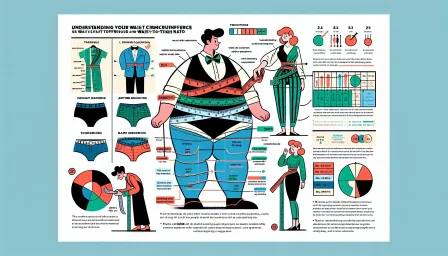Mediterranean Diet for Weight Loss: A Comprehensive Guide to Get Started

Discover how the Mediterranean diet can help with weight loss. This comprehensive guide provides everything you need to get started on a healthier, sustainable journey.
The Mediterranean diet is not just a diet, but a lifestyle change that has been shown to offer numerous health benefits, including weight loss. Originating from the eating habits of countries bordering the Mediterranean Sea, this diet emphasizes whole foods, healthy fats, and seasonal produce. In this comprehensive guide, we will explore how you can effectively follow the Mediterranean diet for weight loss and improve your overall well-being.
What is the Mediterranean Diet?
The Mediterranean diet is based on the traditional foods and recipes of Mediterranean countries such as Greece, Italy, and Spain. It focuses on consuming:
- Fruits and vegetables
- Whole grains
- Healthy fats, especially olive oil
- Lean proteins, particularly fish and poultry
- Legumes and nuts
- Herbs and spices
- Moderate amounts of dairy and red wine
Why the Mediterranean Diet is Effective for Weight Loss
Several factors make the Mediterranean diet effective for weight loss:
Rich in Nutrient-Dense Foods
By prioritizing nutrient-dense foods like fruits, vegetables, whole grains, and lean proteins, the Mediterranean diet helps ensure you get the necessary vitamins and minerals without consuming excess calories.
Healthy Fats
Unlike other weight-loss diets that limit fat intake, the Mediterranean diet includes healthy fats from sources like olive oil, nuts, and fish, which are essential for satiety and overall health.
Moderation and Balance
Portion control and balanced meals are fundamental principles of the Mediterranean diet. This approach can help you avoid overeating and reduce the intake of unhealthy, calorie-dense foods.
Encourages Physical Activity
The Mediterranean lifestyle goes beyond diet by also encouraging regular physical activity, which is crucial for weight loss and overall health.
How to Get Started on the Mediterranean Diet for Weight Loss
1. Stock Your Kitchen
Start by stocking up on Mediterranean staples such as olive oil, whole grains, fresh fruits and vegetables, nuts, seeds, and lean proteins. Clear out processed and unhealthy foods to avoid temptations.
2. Plan Balanced Meals
Plan your meals to include a balance of macronutrients. For breakfast, you might have Greek yogurt with fresh berries and a drizzle of honey. For lunch, a salad with mixed greens, chickpeas, feta cheese, and olive oil dressing. Dinner could be grilled salmon, quinoa, and roasted vegetables.
3. Embrace Herbs and Spices
Utilize herbs and spices to enhance the flavor of your meals without relying on salt or unhealthy sauces. Common Mediterranean herbs and spices include basil, oregano, thyme, rosemary, and garlic.
4. Practice Portion Control
Be mindful of portion sizes, especially when it comes to calorie-dense foods like nuts and olive oil. Using smaller plates and bowls can help you control portions more easily.
5. Stay Hydrated
Don't forget to drink plenty of water throughout the day. While moderate wine consumption is part of the Mediterranean diet, it's crucial to balance it with sufficient water intake.
Sample Mediterranean Diet Meal Plan
Day 1
- Breakfast: Oatmeal with fresh fruit and a sprinkle of nuts
- Lunch: Grilled chicken salad with mixed greens, cherry tomatoes, cucumber, olives, and feta cheese
- Dinner: Baked cod with quinoa and steamed broccoli
- Snack: Hummus with carrot and celery sticks
Day 2
- Breakfast: Greek yogurt with honey, walnuts, and blueberries
- Lunch: Whole grain pita stuffed with falafel, lettuce, tomato, and tzatziki
- Dinner: Spaghetti made from whole grain pasta, tossed with garlic, olive oil, cherry tomatoes, and basil
- Snack: A handful of almonds
Potential Challenges and How to Overcome Them
Adjusting to New Eating Habits
Transitioning to the Mediterranean diet may be challenging at first, especially if you're used to processed foods. Ease into it by gradually incorporating more Mediterranean foods into your existing diet.
Dining Out
Eating out can pose challenges, but with a bit of planning, you can stick to your diet. Opt for restaurants that offer Mediterranean cuisine or choose menu items that fit the diet’s principles.
Conclusion
Adopting the Mediterranean diet for weight loss is a sustainable and effective strategy that not only helps you shed pounds but also promotes overall health. With its focus on fresh, whole foods, healthy fats, and balanced meals, this diet can be a lasting change. Start today by integrating Mediterranean foods into your daily routine and you'll be on your way to a healthier, happier you.



























